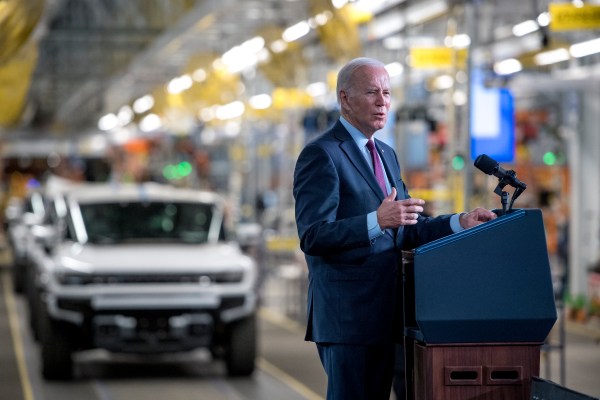For years, the U.S. lagged behind much of the rest of the world when it came to climate action. The European Union and its members were particularly critical, calling the U.S. out for its repeated refusals to sign the Kyoto Protocol and then for pulling out of the Paris Agreement under the Trump administration.
Then last year, the EU’s arguments changed seemingly overnight, from criticizing American intransigence to claiming that the country had gone too far.
The transformation was catalyzed when President Joe Biden signed the Inflation Reduction Act into law on August 16, 2022. The law didn’t just catapult the U.S. into a leading position on climate action, but it also added another sticking point to the increasingly fraught relationship between the U.S. and the EU.
The bill’s surprise passage ushered in $369 billion worth of stimulus and incentives aimed at boosting the country’s climate tech sector and its industrial base. In the process, it could help slash carbon pollution in the U.S. by about 40% — below 2005 levels — by 2030.
This should have brought cheers from Brussels. Instead, the bloc seethed with not-so-quiet frustration over “buy American” provisions. Within a month, the bloc said it would investigate whether the provisions of the law violated World Trade Organization rules.
Role of markets
For the last couple decades, the European approach to climate change has been heavily reliant on sticks over carrots. The centerpiece of EU climate policy has been emissions reduction targets supported by a carbon market, a blend of government regulation and liberal economics that have formed the backbone of many climate proposals.
Emissions trading is a concept cooked up in the U.S. in the late 1960s and early 1970s, when air pollution was spiraling out of control. Over the years, the U.S. has embraced emissions trading for specific pollutants like sulfur dioxide and nitrogen oxides. Carbon cap-and-trade never really caught on here, though. There are various regional markets, but a nationwide carbon market proposed in 2009 never made it past the House of Representatives thanks to the threat of a Republican filibuster in the Senate.
